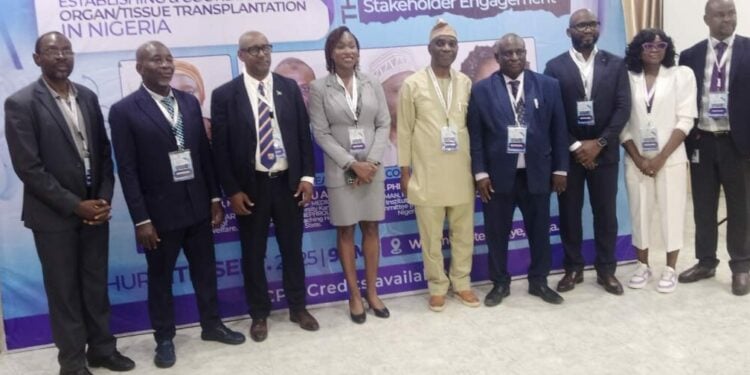A Professor of Medicine at the Bayero University, Kano (BUK) and consultant physician and nephrologist, Aminu Kano Teaching Hospital, Kano (AKTH), Aliyu Abdu, has revealed that a total of 10,000 kidneys were sold in the black market globally every year with about 651 kidneys worth over $41billion trafficked and transplanted illegally in Nigeria between 2015 and 2020.
Speaking at a seminar on National Organ and Tissue Transplantation Standards, organised by Clarion Call Care Foundation, Abuja, Prof. Abdu said that, unfortunately, some of the donors were either coerced or forced, while some were driven and influenced by poverty.
“Victims are mostly impoverished people who are easily influenced by financial incentives and ignorant of the possible risks involved.
“Organ trafficking flourishes in Nigeria for a variety of reasons including poverty, inequality, unethical medical practices, and lack of regulation and enforcement of medical ethics and unconscionable medical practitioners as facilitators,” he said.
He equally alluded that most of the organ donors were left without proper medical care or financial compensation after the procedure is completed, so leaving them to suffer depression and diseases arising from poor and unprofessional handling of their case.
“Victims are mostly impoverished people who are easily influenced by financial incentives and ignorant of the possible risks involved.
“Lack of an alternative source of organs, such as cadaveric donations, and the presence of organ banks are also responsible for the thriving of the business.
“Unfortunately, most of the organ donors are left without proper medical care or financial compensation after the procedure is completed,” he lamented.
According to the consultant Professor, the kidney business involves the criminal underworld through an organised network of illegal brokers and agents who supply organs from victims to recipients, ranging from those who work as ‘organ hunters’ to those who work full-time in the medical industry, including physicians, nurses, anaesthetists, ambulance drivers, travel agents and insurance agents.
Kidneys, he said, are the most commonly-trafficked organs illegally with an estimated 10,000 kidneys sold every year and one every hour.
The World Health Organisation (WHO), Prof. Abdu said defines organ trafficking as the recruitment, transportation, transfer, harbouring or receipt of living or deceased persons or their organs by means of threat, use of force or other means of coercion or deception for organ removal or transplantation.
Meanwhile, in Nigeria, organ donation and transplantation are primarily governed by the National Health Act of 2014, which prohibits the commercialisation of human organs and requires informed consent from the donor for the removal of tissue.
LEADERSHIP reports that the law allows for the reimbursement of reasonable costs incurred by the donor but makes any financial exchange for an organ punishable by a fine or imprisonment. There are also age restrictions, prohibiting the removal of a kidney from anyone under 18 or over 65 years old.



